
Toxic Movies That Have Destroyed Our Perception of Love & Consent
Hollywood gets it wrong. And we're not talking about the sexist movies, or the films glorify violence, or the ones that glamorize crime, and getting away with it.
Hollywood gets love wrong, and because we buy into the pretty fantasy, we get it wrong too. We buy into extreme and frightening behavior as acceptable, even desirable.
Hollywood on-screen lovers have been giving us bad examples for decades, and we take it all as gospel because honestly, we want to believe. And do we actually think about what we've just seen when we walk out basking in that lovely pink glow of "happily ever after"'?
The Most Romantic Movie of All Time
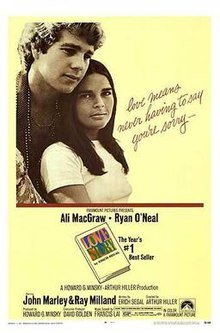
Wikimedia Commons/ Fair use
When "Love Story" came out in 1970 it was an instant blockbuster hit. Starring Ryan O'Neal and Ali McGraw, it told the story of Oliver and Jenny, starcrossed lovers from opposite sides of the tracks who defy the world to be together.
By the end of the movie, there was not a dry eye in the house as Jenny dies in Oliver's arms from incurable cancer. That's all fine and good, but did Jenny have to give up her classical music?
Sure, Oliver gave up his privileged lifestyle to be with Jenny, but he did not give up his ambitions. She, however, gave up her classical music scholarship in Radcliff and her life's dream to put him through Harvard Law School when mom and dad's money dried up... Seriously?
But "Love Story's" biggest sin was that it convinced an entire generation that "love means never having to say you're sorry." Wrong, girls and boys! Love means saying you're sorry again and again, as many times as you screw up.
Don't Make Me Over
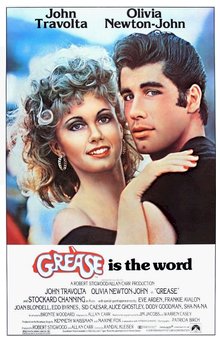
Wikimedia Commons/ Fair use
Who didn't love singing and bopping along to "Grease"? And wasn't Sandy and Danny Zuko's love story just so adorable? Oh, it was! If you think making yourself over to gain someone's love is healthy...
So Sandy and Danny have a summer romance, kiss and say goodbye and never imagine they will see each other again. BAM! They end up in the same school, and Danny totally humiliates Sandy, nonchalantly dismissing their relationship.
The admittedly teenaged Danny is too cool to show how much he loves Sandy, despite the fact that she's a "good girl" and not a stone fox. So in order to fit into Danny's world, Sandy completely transforms herself -- even takes up smoking! -- in order to become the sexy woman Danny won't be ashamed to date.
Changing yourself to become acceptable to someone you love is wrong on so many levels it's just frightening, but Hollywood shows us that the happy ending is dependant on it. Change so you can be loved. Wrong! Be yourself, if the one you love deserves you, he or she will love you as you are.
Tied Up In Knots
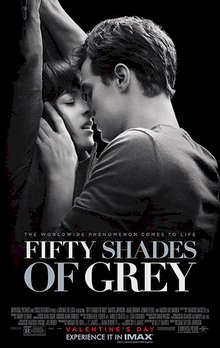
Wikimedia Commons/ Fair use
The world went wild over "50 Shades of Grey," first as a novel, then as the inevitable movie adaptation. And the fundamentally disturbing and unhealthy relationship between Christian Grey and Anastasia Steel became the romance millions sighed over.
Unfortunately, the Hollywood glamour and the eroticism masked what is a fundamentally toxic relationship. One of Christian's first acts is to get Anastasia to sign a non-disclosure agreement and he persuades her to engage in fetish sex even though he knows she is a virgin.
Throughout the movie, the couple indulges in steamy sex and emotional distancing, and Christian (a billionaire) showers impoverished student Anastasia with expensive gifts, further emphasizing her subservient status... Really?
A man who needs to feel superior and that he controls a woman in bed and out of it is sexy? Not to mention the scene where he "punishes" her by hitting her. Bondage is one thing, and girls and boys, according to the aficionados, it is the person being tied up who is getting his or her desires fulfilled, not the tier-upper...
"50 Shades" didn't just get the whole thing wrong, it convinced millions that a profoundly disturbed man is desirable. In real life, if you meet a Christian Grey act-alike, run!
Sexy Stalker
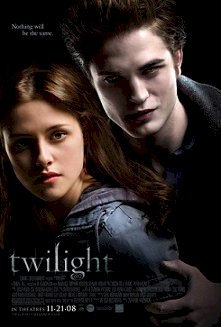
Wikimedia Commons/ Fair use
The "Twilight" saga movie franchise, based on Stephenie Meyer's novels of the same name had millions upon millions of teenage fans around the world and reinvented the vampire genre as young romance.
Of course, Edward Cullen isn't a teenager at all. He is over 80 years old, and he becomes obsessed with high school student Bella Swan. And this is where it gets creepy, and no-one seems to notice: He wants to kill her and drink her blood, and refrains with great effort.
Bella, in turn, becomes equally obsessed with the emotionally distant Edward, who rejects her overtures at friendship again and again. Boys and girls, emotionally distant people are not good prospects for a healthy romance. Ever. No matter how unbearably beautiful they are.
Creepier still is the fact that Bella discovers when they finally do hook up that Edward sneaks into her house to watch her sleep all night long! And we're not even going into that part of the story that has Edward saving Bella from rape because he was following her to keep her safe...
Basically, if Edward looked his age -- 80 something -- and was played by Donald Sutherland, instead of the beautiful Robert Pattinson, we'd be repulsed by the whole scenario. We'd be rooting for him to end up in jail and on the sex-offender registry instead of the happily-ever-after Hollywood dished out. Talk about a toxic relationship...
Seductive Obsession
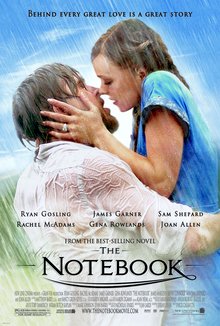
Wikimedia Commons/ Fair use
Another tear-jerker that has moviegoers fooled is "The Notebook." Yes, the segment of the movie in which Noah Calhoun heroically fights to restore his beloved Allie's memory is inspiring, but what about their love story?
It starts with yet another opposite sides of the tracks romance, with Noah relentlessly pursuing Allie -- who has a boyfriend -- and persuading her into a romance he knows will cause her pain. Of course, the couple ends up breaking up, and for the next year, Noah sends her a letter every day.
Every single day...For 365 days...OK...That is definitely creepy and would have been seriously scary for Allie if she'd known about it, but her mother intercepts the letters. Allie is being harassed and doesn't even know it.
Then, years later, after World WarII, the still obsessed Noah convinces himself that if he invests every cent of his family's money into an abandoned house Allie once wanted to restore, she will be his.
It sounds romantic, right? But any good therapist would be hearing alarm bells ringing. Yes, his obsession with Allie is romantic on the surface, but is it healthy? You bet your romantic tushie it ain't!
The story skips to the grand finale, Noah, and Allie in their twilight years, languishing in a retirement home, but what were the 50 intervening years like?
What would it be like for Allie to be married to an obsessive man for 50 years, once the glow of being the focus of someone's entire life wore off? Think about it...
Disturbing Eroticism
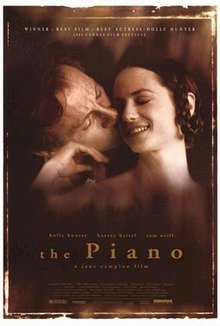
Wikimedia Commons/ Fair use
We admit we loved "The Piano." How could we not? The cinematography, the performances by that magnificent quartet of actors: Holly Hunter, Harvey Keitel, Sam Neill, and Anna Paquin; and the music, that magnificent music.
Now let's talk about the story. A profoundly disturbed woman who refuses to speak is sent to New Zeland to an arranged marriage accompanied by her daughter, Flora. Flora is the result of Ada's seduction by a teacher who then abandons her.
Ada also takes along her beloved piano, which has become in effect her "voice," the only way she can express her emotions. On arrival in New Zeland, her new husband abandons the unwieldy piano on the beach, then later sells it (although it isn't his) to his seriously creepy neighbor George Baines.
But George has a cunning and evil plan. He takes the piano home and asks Ada to give him piano lessons. Her husband, with whom Ada refuses to have sex, agrees. George then blackmails Ada into letting him have increasingly invasive sexual contact with her in exchange for her piano, one key at the time.
Ok, so George is molesting a disabled woman, while her daughter plays outside and this is romantic? Really? Later, Ada ends up having consensual sex with George, though it reeks to high heaven of Stockholm Syndrome, and her husband watches.
Yep, hubby is a peeper. He doesn't just watch, he masturbates and later attempts to have sex with Ada. He ends up mutilating her, cutting off a finger, all in the name of love.
What is so seductive about "The Piano" is the incredible beauty of the film. Somehow it manages to make sexual molestation, intimidation, attempted rape, and mutilation romantic.
There is no way a real-life situation containing those elements is going to end up in a happily ever after. Ever. More likely, it would end up in court, with the two men serving serious jail time.
Say No To Toxic Romance

Pexels
So where does that leave us? We like those romances, right? And it's OK to enjoy the movies, but make sure your relationship goals are very different.
If someone watches you sleep, call the police; if a guy sends you 365 letters, change your name and leave the state; if a man wants you to change so he can love you, kiss him goodbye; and if your new boo wants you to sign a non-disclosure agreement, tell him to take a hike.
And last but not least, if he tells you "love means never having to say you're sorry," dump his ass. It's time you invested in real-life-love, not Hollywood-style toxic romance. You deserve it.